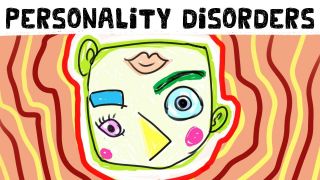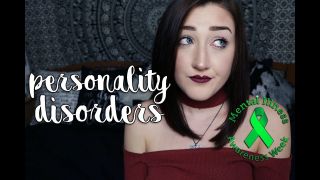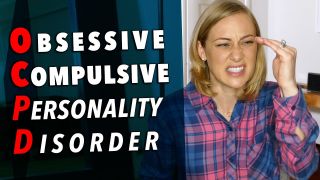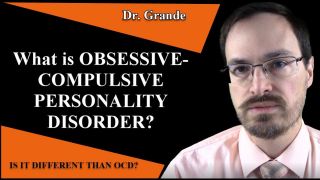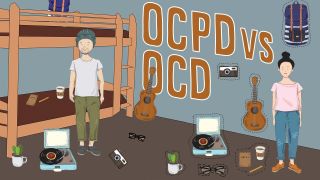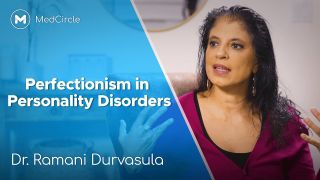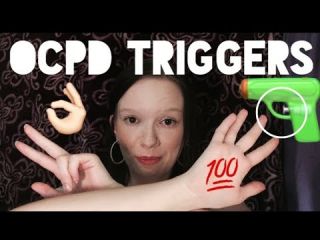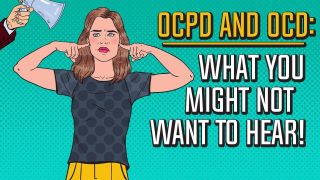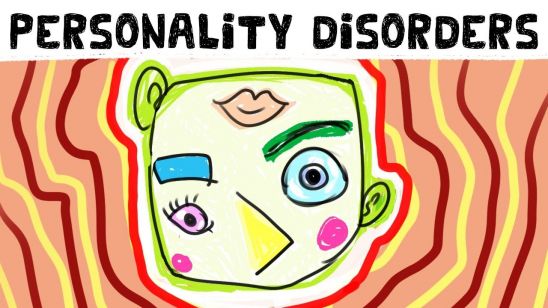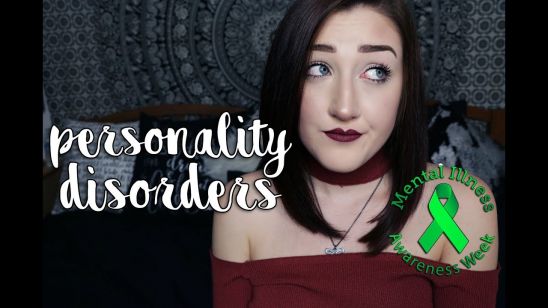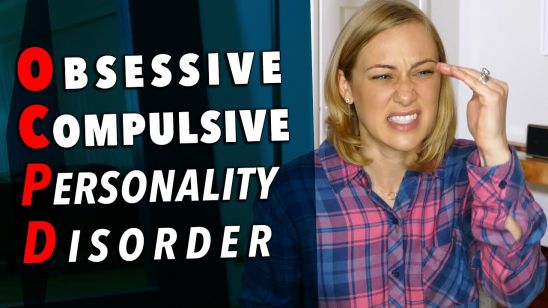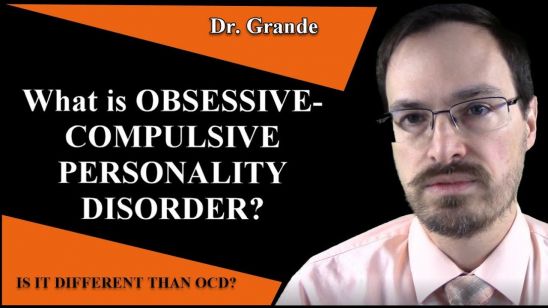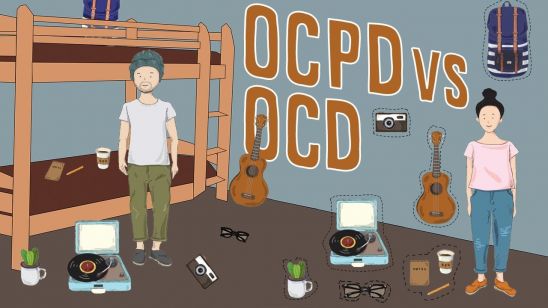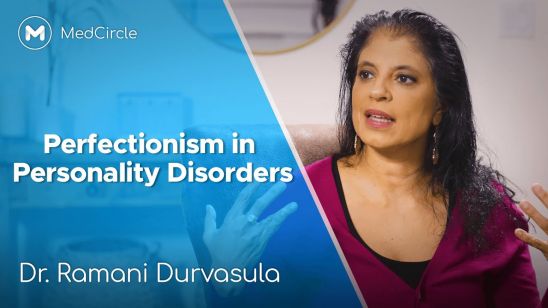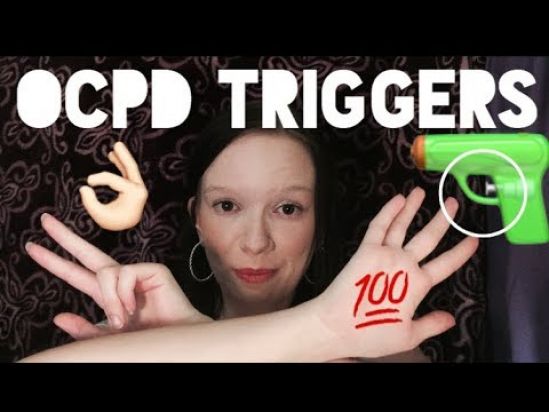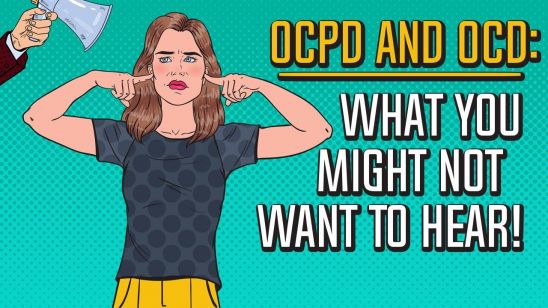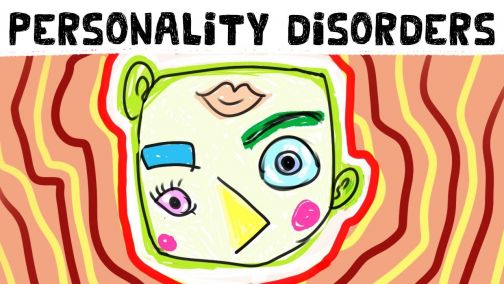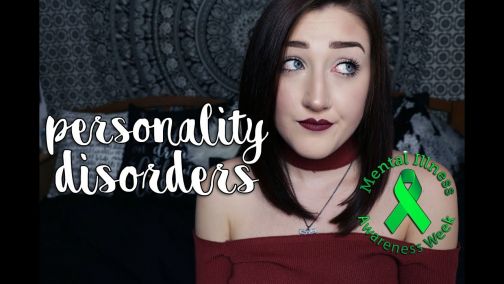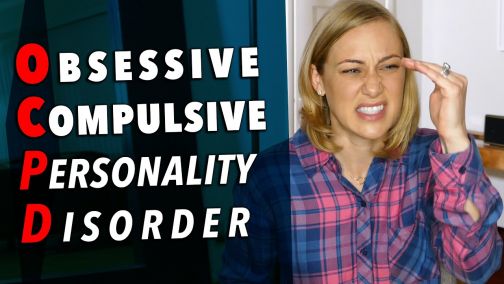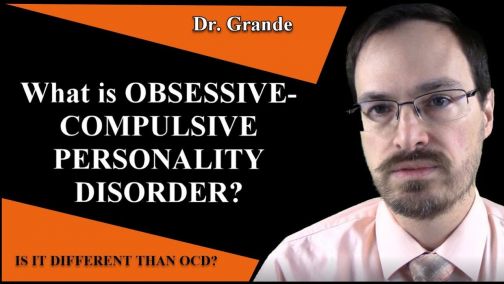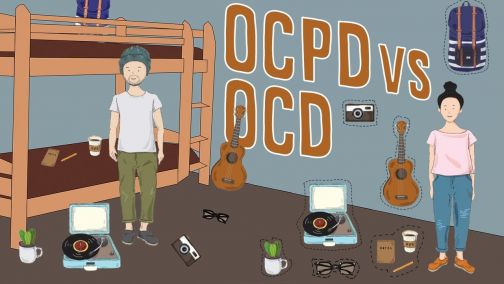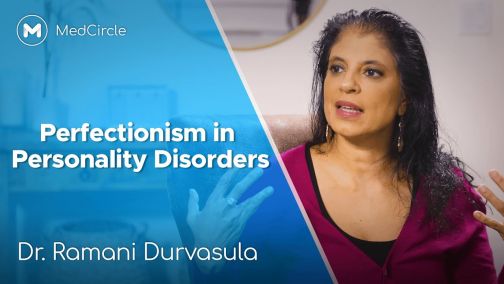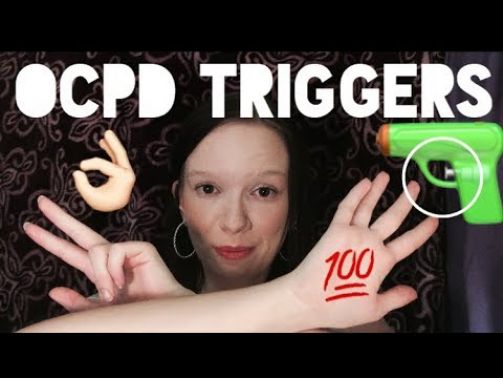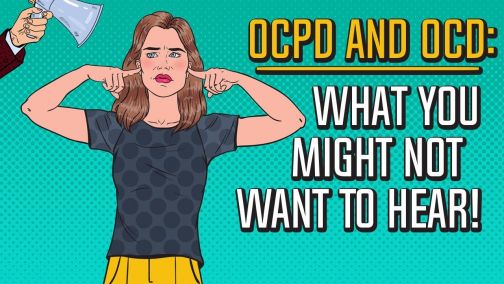Obsessive Compulsive Personality Disorder
Also known as OCPD
What is it?
Personality disorders are deeply ingrained patterns of behavior that violate social norms and cause problems in interpersonal relationships. They are broken into three categories — Cluster A, B and C.
Personality disorders are previously known as axis two disorders — a group of conditions that impact a person’s function in relation to others. They are ego-syntonic, meaning a person with a personality disorder often doesn’t believe they have a problem. The disorder is consistent with their world view, perception of others and perception of themselves. They usually begin during a person's teenage years or early adulthood, and in some cases, become less obvious in middle age. It is common for people with one personality disorder to have symptoms of another.
Obsessive Compulsive Personality Disorder, also called OCPD, is a Cluster C disorder. Cluster Cs are characterized by anxious or fearful behavior. People with OCPD have an excessive concern with orderliness, perfectionism, attention to detail, and a need for control over their environment. These obsessions get in the way of their ability to be efficient, flexible or open to new experiences. They often choose to do things “their way” rather than rely on the help of others.
OCPD often occurs alongside other mental health conditions including major depressive disorder, OCD, eating disorders, hoarding, and substance use disorders. It’s estimated that between 2.1% and 7.9% of the U.S. population have OCPD. It is more common in men than women.
What are the symptoms?
People with OCPD have a preoccupation with orderliness and control that gets in the way of completing tasks. Things must be done exactly how they would do them. They may get angry at others who try and intervene or take a different approach. They check endlessly for mistakes and pay very close attention to detail. Doing so often makes them inefficient workers. They may find it hard to relax, and constantly feel as if they are running out of time to complete tasks.
Additional symptoms include:
- Being overly perfectionist, to the point that it gets in the way of completing tasks
- Stiff or formal mannerisms
- Having an overwhelming need for order
- Being very frugal with money
- Always needing to be exactly on time
- Paying extreme attention to detail
- Putting work above family and friends
- Hoarding useless items
- Having an inability to share responsibilities or collaborate out of a fear things won’t be done right
- A fixation with lists
- A rigid adherence to following rules
- A sense of superiority about how things should get done
- A rigid adherence to morality
It’s important to note that OCPD is not the same as obsessive compulsive disorder (OCD), despite people often confusing the two. They share similarities, but are entirely separate conditions. In some cases, people may have both disorders at once, making diagnosis and treatment more difficult.
What are some common warning signs?
OCPD is characterized by perfectionistic tendencies and a need for control. Because of this, a loved one with OCPD might display noticeable symptoms at home, at work or in social settings. Pay attention to their time management skills, social habits and relationships with others. Ask yourself the following questions:
- Do they spend hours working on things that should be easily accomplishable?
- Do they keep their personal space extremely clean, and abide by strict organizational patterns?
- Do they get upset when asked to do things in a different way?
- Do they double check their work over and over again?
- Do they push work until the last minute, and then rush to get it done?
- Do they prefer to work solo, rather than in groups?
- When asked to work in groups, do they offer to take on the majority of the workload?
- Do they prioritize work over their personal relationships?
- Do they give up leisure activities to “work” and feel productive?
- Do they have rigid mannerisms, and avoid seeming “emotional” in front of others?
None of these behaviors confirm a OCPD diagnosis, but they do hint at one. If you feel comfortable doing so, talk to your loved one about this behavior and why you’re concerned. Keep in mind that symptoms aren’t always obvious. People battling chronic mental health conditions often learn to hide their pain from others. It’s possible to appear outwardly fine, while facing mental difficulties in secrecy.
What causes OCPD?
The exact causes of OCPD are unknown. Doctors believe a range of factors play a role in its development, including being genetically predisposed (i.e. other family members struggle with OCPD or other mental disorders) or being raised by parents with very high standards.
How is it treated?
The primary treatment method for all personality disorders, OCPD included, is psychotherapy (aka talk therapy). Cognitive Behavioral Therapy (CBT) is commonly recommended. Additional options include Psychodynamic psychotherapy and group therapy.
Medications are not commonly used to treat personality disorders. However, they may be recommended to address severe cases or symptoms that stem from co-occurring conditions. Common medications include anti-depressants such as SSRIs or SNRIs, and anti-anxiety medications (aka Benzodiazepines).
Treatment is complicated if the person does not accept that they have OCPD, or believes that their thoughts and behaviors don’t need changing.
OCPD is often confused with Obsessive Compulsive Disorder. People with OCD experience obsessions and compulsions driven by mental anxieties that they can’t control. They feel trapped by these behaviors and the anxiety they cause. People with OCPD engage in perfectionistic and controlling behavior in order to satisfy a standard they’ve set for themselves. They do not see their tendencies as problematic.
It’s important to remember that treatment plans are personalized. If you’re seeking help, make sure you work one-on-one with a doctor to create a plan that fits your needs. Just because a medication or therapy helps someone else recover, doesn’t mean it’ll be the right solution for you. Don’t ever feel guilty about asking for help, taking meds or going to therapy. Addressing your mental health is a productive and courageous thing to do.
How can I help a loved one with OCPD?
Caring for someone with OCPD is not easy. Their tendencies may keep you from enjoying certain events or activities. Or, keep you from accomplishing things you need to get done in an efficient manner. It’s important to remember that their behavior has nothing to do with who you are or how much they care about you.
Knowing how to help can be hard as well. Do they want to talk about their behavior? Will they push you away if you try to help? There are no easy answers to these questions. Every person handles their mental health differently. That said, we all want to feel loved and supported. Showing someone that you’re invested in their wellbeing can make a world of difference.
Here are some ways to do so:
- Educate yourself: Read up on symptoms, treatment options, and healthy living recommendations. Try and understand what your loved one is going through so you are better equipped to talk to them about it. This will also make you a valuable resource when it comes time to find treatment.
- Advocate treatment: Asking for help can be hard. Societal stigma often keeps people from opening up to others about their symptoms. Support your loved one by helping them research different treatment methods, or doctors in their area. If they’d like, go to a few sessions with them. Remind them that there’s nothing weird about getting help, and that you’re proud of them for following through.
- Compliment them: Let them know when they do something well. People with OCPD are often self-conscious about the “final product” and these acknowledgements will make them feel accomplished.
- Set boundaries: You want to be understanding of their symptoms, but that doesn’t mean you have to put up with everything. Make rules for what you will and won’t tolerate. Stick to these boundaries and follow through on consequences when they’re broken.
- Be patient: Don’t take it personally if they lash out at you. They are battling something that’s very hard to overcome. Their distance has nothing to do with who you are as a person. Keep showing up for them even when it feels like it’s not helping. The act alone lets them know that they have people in their life who care.
What other resources are out there?
Want to learn more, find a doctor, join a support group or speak to a counselor? The below resources might be able to help:
- New England Personality Disorder Center
- Emotions Matter
- Crisis Text Line
- BetterHelp
- Psychology Today Directory
- American Psychiatric Association
- Medicaid Eligibility Information
- Open Path Collective
- Resources for POC, LGBTQ+ and disabled individuals
- Anxiety and Depression Association of America
- National Network of Depression Centers
- Medicine Assistance Tool
- NeedyMeds
- Erika's Lighthouse
- Anxiety Network
- Anxiety Central Forums
- National Social Anxiety Disorder Center
- International Society for the Study of Trauma & Dissociation
Support our work
We’re on a mission to change how the world perceives mental health.

